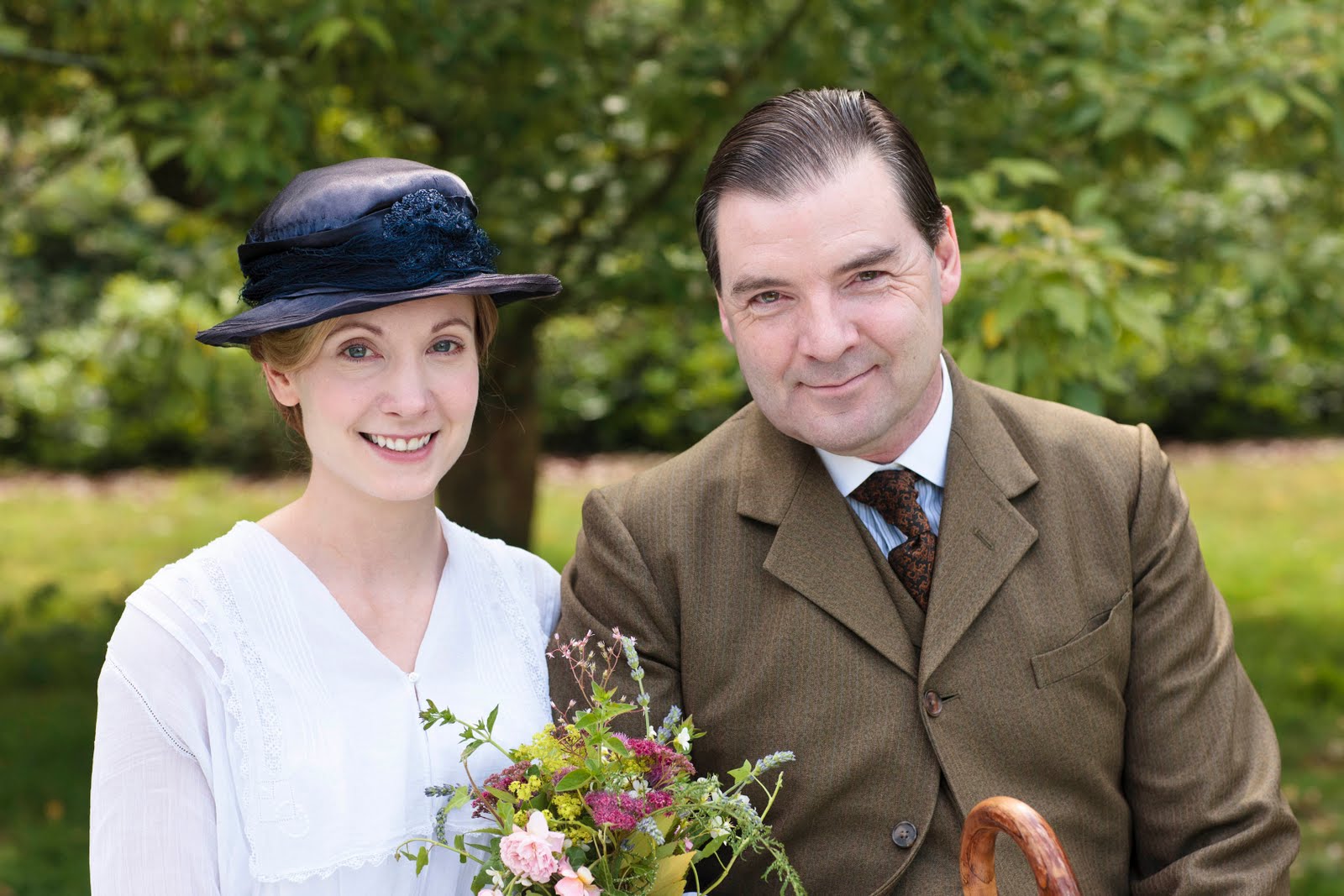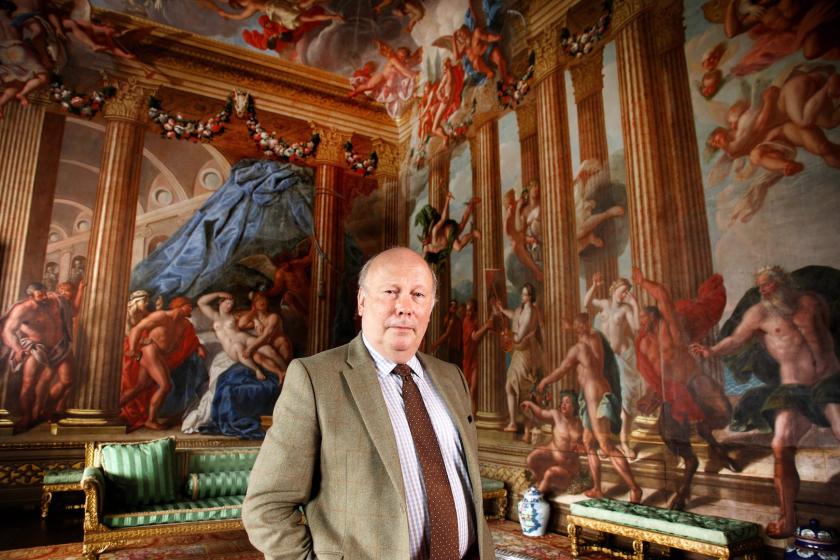It was surely a no-brainer for ITV to produce a series about grand houses presented by Julian Fellowes with stories about those who lived and worked in them. But while it may sound wholly derivative to many, at least Fellowes - unlike a raft of celebrities presenting television programmes these days - has the wherewithal. He's an acknowledged expert in the field - although (wittily, I think) the titles were a neat rip-off of Downton Abbey's and he shamelessly plugged his upstairs-downstairs drama in the opening scenes.
In the first of a two-parter he explained he was “trying to find the real Lord Grantham, the real Lady Mary... the real Bates, the real Anna” (Brendan Coyle and Joanne Froggatt as the latter two pictured below). Great houses, he continued, “Are not just houses for posh people to live in - their history belongs to all of us,” which was a clever nod to those of us plebs who stump up hard-earned money (as opposed to inherited wealth) to see this shared history close-up, and of course to the American market, which keenly laps up this sort of thing.
He uncovered some rum goings-on about an accidental death at the house being covered up
He was at Burghley House in Lincolnshire, best known to equestrian fans for the three-day event held in its extensive parkland each year. Most years a member of the royal family may be competing or spectating, but Fellowes started his story with a royal from a bygone age, Elizabeth I. Her chief adviser, William Cecil, 1st Lord Burghley, had built the house to impress her, but her planned visit never took place because of a smallpox scare.
Cecil and his descendants have lived at Burghley for 500 years, and Fellowes unearthed a few good stories. The first lord played a large part in “solving” the Mary Queen of Scots problem for his queen, and there was a precious moment when Fellowes spoke to one of Burghley's descendants; he was quick to point out that he was descended from Elizabeth I's private secretary, Sir Francis Walsingham. Yes, Julian, we get it, you're properly posh.
He uncovered some rum goings-on about an accidental death at the house being covered up and the callous treatment of the victim's widow (leading Fellowes to remark, “I'm not much of a revolutionary, but now and then you do see their point”) while this country's obsession with class was highlighted by the 10th earl's second wife, a farmer's daughter, Sarah Hoggins. She was never accepted by society and had an unhappy four years as mistress of Burghley House, with 50 servants under her command, before she died shortly after childbirth in 1797.
 Having told two upstairs stories, Fellowes then went behind the green baize door to tell a couple of tales about downstairs folk. The first was rather amusing, about a servant who appears in parodic form as a six-breasted Ceres in a ceiling painting by the great baroque muralist Antonio Verrio, who spent much of the 1690s working at Burghley House. Anecdotage has it that he included her because she spurned his advances, but Fellowes formed the view that she was the house brewer (though this was merely a guess) and she was presented ironically as the god of abundance by the hard-drinking Verrio because she was annoyingly unabundant with the beer. The house historian politely mumbled something about that being possible but looked unconvinced.
Having told two upstairs stories, Fellowes then went behind the green baize door to tell a couple of tales about downstairs folk. The first was rather amusing, about a servant who appears in parodic form as a six-breasted Ceres in a ceiling painting by the great baroque muralist Antonio Verrio, who spent much of the 1690s working at Burghley House. Anecdotage has it that he included her because she spurned his advances, but Fellowes formed the view that she was the house brewer (though this was merely a guess) and she was presented ironically as the god of abundance by the hard-drinking Verrio because she was annoyingly unabundant with the beer. The house historian politely mumbled something about that being possible but looked unconvinced.
He also told the horribly sad story of a dairymaid who had concealed her pregnancy but whose baby then died. She was prosecuted and spent time in Stamford gaol, described in contemporary accounts as the worst prison in England. It could have come from a Thomas Hardy novel, but Fellowes brought her story bang up to date with some of her descendants; it was sort of a happy ending but without a hint of sentimentality.
Fellowes is a jolly presence with a nice line in knowing self-deprecation; as he was tapping with two fingers at a computerised archive, he said: “All pretty complicated for a man who can't work a tin opener.” (That's what one's valet is for, surely?) But he packed a lot into a very entertaining and well-made hour, gave experts their due and, as we know from Downton Abbey at its best, he certainly knows how to tell a story.
- Great Houses With Julian Fellowes concludes next Tuesday















Add comment